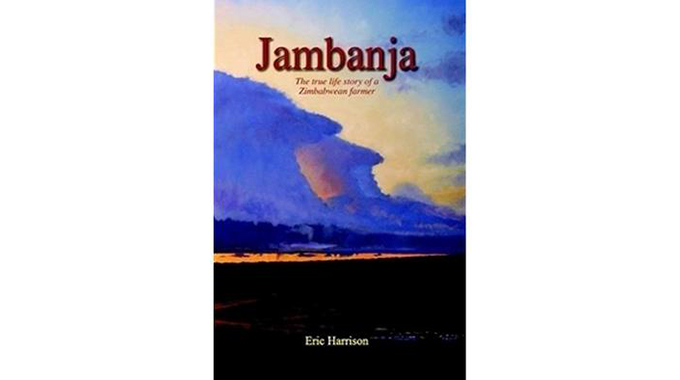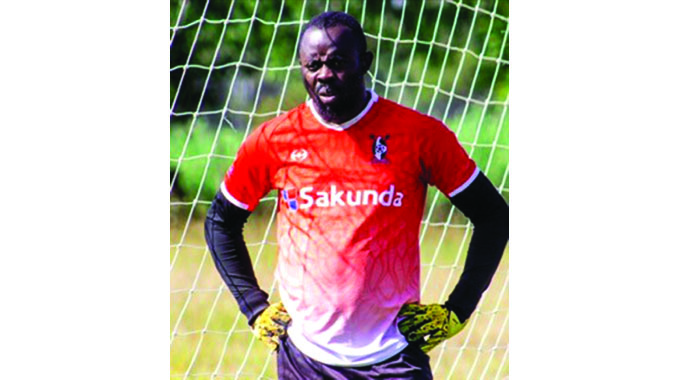GOODBYE JAMANDA, CHIEF OF PROTOCOL

Sharuko On Saturday
ON Thursday, Simeone Jamanda, the original football Bhuju before Simba Ndoro adopted the nickname, died.
For years, he had bravely fought diabetes and became an advocate in the fight against this monster in a crusade in which he helped thousands of others.
Diabetes should have known that it was in for one hell of a fight, when it invaded Jamanda’s body because it was taking on a real fighter who confronted battles with the kind of fearlessness only found in real Warriors.
Jamanda was a true Warrior, which probably made his lifelong romance with his national team a natural love affair, which could only be ended by death.
Of course, not even death can erase this beautiful romance and, decades from now, our kids will be reading that there once lived a true football fan, and Warriors super fan, whose name was Jamanda.
He was also a fighter.
Especially against the evil men who come to our national game to plunder it and, while this meant he missed a lot of opportunities, sidelined because of his principles, it only hardened the fighter within him.
Now and again he would tell me that he was the only real chief of protocol, which our football has had, and while there was an element of personal bias in that, he really excelled in that role.
That was the role he played at United FC, the club that represented the ashes which were left after the bruising fights for control of Dynamos in 1992, which saw the emergence of an outfit called Dynamos United.
Those who were on the other side, including the late former Clerk of Parliament Austin Zvoma, who was part of the crew which was led by the late Morrison Sifelani, went to court to stop what they called “copycats” from using the name Dynamos.
Businessman, Joel Salifu, who was leading the breakaway bid, decided to drop the name Dynamos and stayed with the “United” as his team battled for honours in Division One in 1993.
They should have won the league, and a place in the Premiership, were it not for the dark arts which were employed, given Sifelani was also chairman of the top-flight league, to frustrate them.
Instead, Rufaro Rovers were given the licence to flout rules and regulations, including using ineligible players, to edge United in a race for the league championship that was as tainted as it was rotten.
But, you can’t keep good people down.
And, in March the following year, Salifu and his colleagues – Ronnie Chihota, Ginger Chinguwa, Ben Muchedzi, Joe Musenda, Forbes Chitava and Lecture Mpange – found a window of opportunity when they took over the Black Mambas franchise.
In that instant, Blackpool, a name which was chosen because they said their team was owned by a pool of black businessmen, arrived on the domestic Premiership scene.
And, in that instant, the domestic Premiership, still adjusting to the reality of having to run its own affairs, without the daily supervision of ZIFA, underwent a seismic change.
We didn’t know it then but, by the end of that season, it became clear to everyone associated with local football that something special was happening in the Premiership, thanks to the impact of what Blackpool were doing.
I might be wrong, but I don’t think there is any local club whose arrival in the domestic Premiership shook it the way Blackpool did, in their first year, and the grand success they achieved, in the following year.
They changed the face of the local top-flight league by becoming the first club which put an emphasis in investing in quality branded kit, paying premium salaries and bonuses to their coaches and players and treating them like true professionals.
JOE WAS THE HEART AND SOUL OF NDOCHI
Somehow, fate had to rule that Jamanda would battle on against diabetes and eventually die in the very year he would mark 30 years since his Blackpool, affectionately known as Ndochi, first arrived in the domestic Premiership.
He is just one of the few leaders of Ndochi who lived to see the 30th anniversary of the year when their trailblazing Blackpool, a club which was way ahead of its time on the local season, arrived in our top-flight league.
Ronnie Chihota, the father figure who was the club president and had the biggest investment, in terms of financial outlay, is one of those who have survived to see the 30th anniversary of Ndochi’s arrival in the Premiership.
Joe Musenda, who had this unique nickname in which everyone called him Pajero, is the other who is still alive.
And, Ben Muchedzi, who once transformed his shop in Southerton into a place where the Blackpool celebrations would be held on the occasions they won their matches in Harare, is the other leader who still lives to this day.
Ginger Chinguwa also lived to see the 30th anniversary.
But, Joel Salifu, also known as Mr Armour, is late and we have just moved into the 12th year since we lost him in July 2012 in Johannesburg.
He had battled ill health, in the final months of his life, robbing him of the hyper action, which had been his hallmark, a proper football man I last saw when we took the same flight to Johannesburg for the 2010 World Cup.
He loved the game and flew to Lyon, France, to cheer for the Dream Team in that World Cup qualifying replay against Egypt in 1993.
Joe was a risk-taker, some will say a gambler, and in Dar es Salaam, for a quarter-final showdown against Young Africans in the ’96 CAF Cup Winners Cup, he even blew the whole contingency money in a casino.
Blackpool won that game 2-1, to complete a 4-2 aggregate victory, the third straight away victory in three matches in the competition, as Blackpool became the first Zimbabwean club to reach the semi-finals of a CAF inter-club tournament.
Ndochi won three of their four home games in the tournament, and drew one, and in eight matches in the tourney, Blackpool won three of their four away games, losing only one.
That one loss, a controversial 0-1 defeat in the second leg of their semi-final showdown against eventual winners JS Kabylie of Algeria, sealed their fate on the away goals rule, having won the first leg 2-1.
I will check my records but I think Blackpool should be the only club, in the history of the CAF Cup Winners Cup, who lost only once, never had a deficit over two legs, won six of their eight games, and drew once, and still didn’t win the tournament.
On the flight to London, before connecting back home, Salifu sat next to me and he was so distraught, by his team’s elimination, it’s a miracle his exploding blood pressure did not bring him down long before we landed.
IN 2010, JAMANDA STRUCK GOLD
Forbes Chitava also didn’t live to see the 30th anniversary after his death in August 2022 while Lecture Mpange died earlier and so did Chris Sambo, who was the chief executive of Blackpool.
Chitava was declared a liberation war hero for his contributions to the war of our freedom and our beautiful game, if it dished similar awards, would have honoured him with a football hero award.
Joel Shambo and Shacky Tauro, who were the two coaches during Blackpool’s best years, are also late and so is Shaw “Gandhi” Mutemajiri, who appeared to do just about everything, when it comes to the leadership of this club.
Goddie Chademunhu, an influential figure in the formation of United FC, just before the transformation into Blackpool, also died in July 2017.
Today, only a few of these fine men whose contribution to the Blackpool cause changed the domestic Premiership, are still alive to witness the 30th year of the moment their club was established.
Kenny “Nzou” Siziba, who was Salifu’s closest buddie and also took a very big role in the running of Blackpool, still lives to this day and will be celebrating at his base in Texas, United States.
There will never be another club like Blackpool.
In their maiden season in the Premiership, they won the Castle Cup after beating Hwange 2-1 in the final at Rufaro.
They finished seventh on 47 points in a season in which Dynamos were crowned champions, Highlanders finished second and CAPS United finished fifth.
The following season, Blackpool improved their points tally by 11, to finish on 58 points, while Dynamos shed four points, to also finish on 58 points.
However, the PSL’s decision that DeMbare should play their final match on Sunday, fully aware of the result they needed to edge Blackpool on either goal difference or goals scored, meant that it remains one of the rotten championship campaigns in the league’s history.
A last-gasp disallowed Blackpool goal in their 3-1 final game win over Tongogara in Kwekwe ended up having significant meaning given that, had it stood, they would have been crowned the champions.
Ndochi finished third in 1996, despite losing Stewart Murisa and Alois Bunjira to CAPS United, and finished fourth in 1997.
However, by 1998, it had become clear that the fuel, which had propelled Ndochi to fly at the same altitude like the big boys, and make history along the way, was running out and, at the end of the year, they sold their franchise to Motor Action.
Jamanda followed his franchise and became one of the most influential figures at the Mighty Bulls.
In 2010, Jamanda finally celebrated winning the league championship, which the PSL leaders had denied him 15 years earlier, as Motor Action were crowned champions.
Two years later, Joe was dead and as we said goodbye to him, we didn’t know that exactly a dozen years from then, Jamanda would also follow him.
One by one, the boys have been going but their legacy, defined by the success of their Blackpool, will live for years.
To God Be The Glory!
Peace to the GEPA Chief, the Big Fish, George Norton, Daily Service, Sitting Bull, Crazy Horse and all the Chakariboys still in the struggle.
Come on Chegutu Pirates!!!!!!!!!!!!!!!!!!!!!!!!
Zaireeeeeeeeeeeeeeeeeeeeee!
Text Feedback 0772545199
WhatsApp 0772545199
Email – robsharuko@gmail,com







Comments